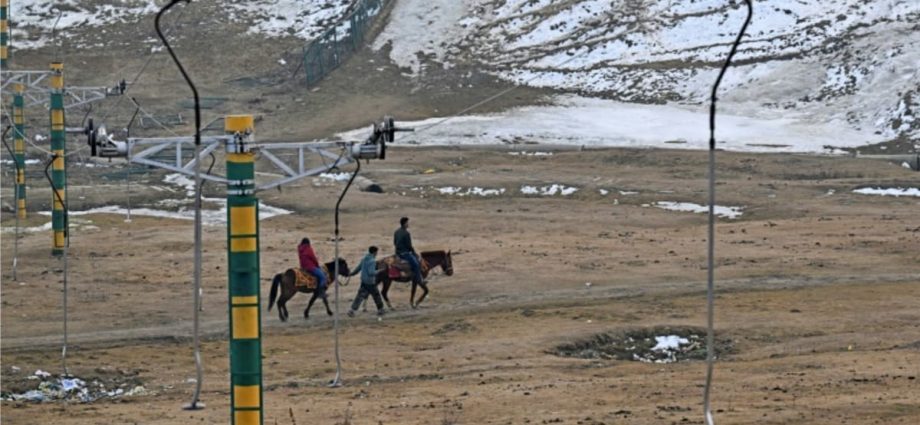
A lone helicopter waits for the few tourists who have still come, offering flights over higher peaks that have a dusting of snow.
“Our guests are mainly skiers, and they have all cancelled their bookings,” said hotel manager Hamid Masoodi. “Those who come despite no snow are also disappointed.”
Ski lifts are closed, rental shops are shut and a newly constructed ice rink is a pool of dank water.
“The current dry spell is an extreme weather event – which are predicted to become more intense and frequent in the future,” said climate scientist Shakil Romshoo, from Kashmir’s Islamic University of Science and Technology.
RISING TEMPERATURES
For decades, an insurgency seeking independence or a merger with Pakistan – and military operations to crush that movement – has seen tens of thousands of civilians, soldiers and rebels killed in Kashmir.
The rebellion has lost much of its former strength, and India has been heavily promoting domestic tourism in the region, home to spectacular mountain scenery
But in Gulmarg, hotel bookings have plunged by as much as three-quarters, tourism professionals say, as hundreds of guides and scooter drivers sit waiting in the sunshine, praying for snow.
“Most foreigners who mainly come for skiing on the deep powder slopes have cancelled,” Bakshi said. “I have lost about 70 per cent of bookings so far.”
Perched at 2,650m, the Himalayan resort is also home to the Indian army’s High Altitude Warfare School, located close to the highly militarised Line of Control, the de facto border that divides contested Kashmir between India and Pakistan.
Kashmir has recorded little rain, and temperatures are about six degrees Celsius higher than normal since autumn last year, according to meteorology officials.

